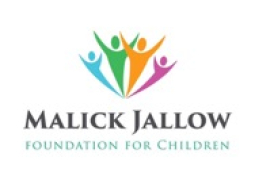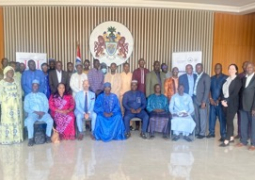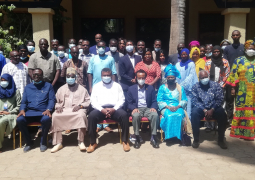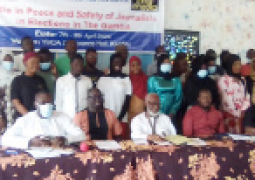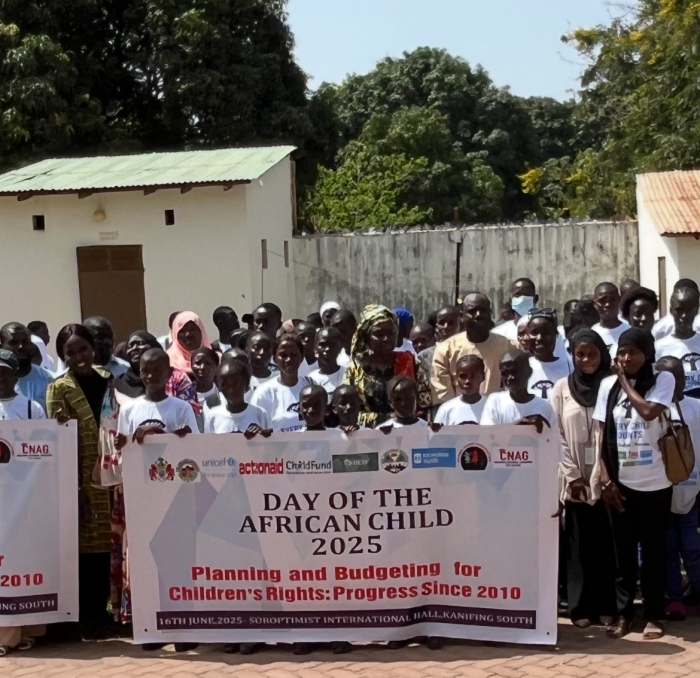
The theme for this year’s event - “Planning and Budgeting for Children’s Rights: Progress Since 2010,’ highlighted the importance of increased investment, accountability, and inclusion in national planning to promote and protect the rights of every child.
The celebration brought together school-going children, child activists, civil society actors, and development partners to reflect on progress made, gaps remaining, and the collective responsibility to ensure that no child is left behind.
At the event, Fatou Kinteh, Minister for Gender, Children and Social Welfare, emphasised the significance of the Day, which she said, was inspired by the bravery of the children of Soweto in 1976, as a powerful reminder of the need to invest in and empower Africa’s most valuable resource its children.
Minister Kinteh highlighted the legal and institutional reforms that The Gambia has undertaken to align with global standards for child protection.
She referenced the Sexual Offences Act of 2013, which provides protection against sexual violence, particularly for vulnerable groups including children and persons with disabilities.
She also spoke about the Amendment of the Children’s Act 2005 in 2016, which she said, criminalises child marriage and child betrothal, noting that progressive reviews are currently underway to enhance its enforcement, supported by adequate resources and monitoring systems.
‘The Women’s Act 2010, which was amended in 2015 to criminalise Female Genital Mutilation/Cutting, and the enactment of the Disability Act 2021 were also mentioned as milestones in The Gambia’s legislative efforts to protect the rights and dignity of all children.’
These legal instruments, according to Gender Minister, are being strengthened by institutional structures such as the establishment of the Gender Ministry in 2019, the creation of a gender unit within the Attorney General’s Chambers in 2014, and the formation of the National Human Rights Commission.
She reminded that community child protection committees, established across the country, are empowering grassroots structures to support prevention and response within the national child protection framework.
That, she said, demonstrates the vital role of development partners in enhancing data collection systems through tools like the Multiple Indicator Cluster Surveys, the Child Protection Information Management System, and the Children’s First Software.
She pointed out that these systems are essential for monitoring children’s well-being and ensuring informed and responsive decision-making at policy level.
UNICEF Representative in The Gambia, Ms. Nafisa Binte Shafique, renewed the call for action, urging all stakeholders to commit to child-centred planning and increased investment in services that impact children’s lives.
She also emphasised the need for greater budget allocations for child health, education, nutrition, protection, and social welfare, along with the adoption of child-sensitive budgeting frameworks that are transparent, measurable, and inclusive.
UNICEF Country rep outlined that meaningful participation of children must go beyond tokenism, and should be grounded in the recognition of their right to be heard and involved in shaping decisions that affect them.
Thus, she called for targeted attention toward the most vulnerable groups, including girls, children with disabilities, children in institutional settings such as majalis, and those living in poverty or on the streets.
She described planning and budgeting not just as technical processes, but as moral responsibilities that can transform lives and redefine national development.
‘When children are prioritized in national agendas, the entire nation benefits.’
She referenced recent data from the Gambia Bureau of Statistics, which reveals that nine out of ten children experience multiple deprivations, lacking access to basic services such as clean water, healthcare, education, nutrition, and safety.
‘About 14,000 children in the country remain unvaccinated, while only 78 percent of school-age children are enrolled in primary school. Alarmingly, 23 percent of girls are married before the age of 18, and half of all girls under 15 have undergone female genital mutilation.’
She reaffirmed UNICEF’s commitment to supporting the country’s efforts to reverse these trends, adding that this year marks 60 years of UNICEF’s partnership with the country and its people; coinciding with the country’s own 60th Independence Anniversary.
She said both milestones are an opportunity to reflect on the achievements so far and to look ahead with renewed determination to build a nation where every child can live with dignity, access to opportunity, and dream without limits.


